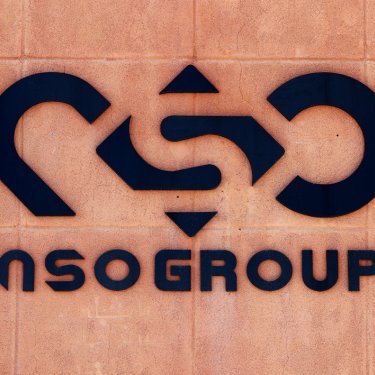Pegasus judicial proceedings in France offer only possibility of justice

A year after the Pegasus Project revealed that at least 200 journalists had been targeted by NSO Group’s Pegasus spyware, the judicial investigation launched in France in response to criminal complaints filed by Reporters Without Borders (RSF) offers the only possibility of identifying, prosecuting and convicting those responsible.
The judicial investigation launched by the “cyber” section at the Paris prosecutor’s office on 1 July is the result of a series of complaints filed over the past year, above all by RSF which – together with 25 journalists from ten countries – filed a total of four complaints. The appointment of an investigating judge should finally shed light on who was responsible in the spying scandal that targeted hundreds of journalists in different parts of the world.
“It is crucial that light should finally be shed on NSO Group’s responsibility,” RSF secretary-general Christophe Deloire said. “When press freedom is attacked in such an insidious manner, nothing should be left unclarified. We welcome the fact that an investigating judge has finally been appointed. The investigation must now get to the bottom of the matter and reveal the names of all the NSO Group clients who have used Pegasus against journalists.
A number of suits have been initiated in connection with Pegasus in various countries including a WhatsApp civil suit against NSO Group in the United States and appeals to India’s supreme court with the aim of establishing the Indian government’s role in spying on journalists. But the complaints in France are the only criminal proceedings that could result in those responsible for spying on journalists being identified, prosecuted and punished.
The French judicial investigation names a long list of crimes that are to be investigated, including criminal association, state agents acting as an organized gang in the accessing and maintaining of an automated data processing system, intercepting correspondence sent by electronic means, installing devices liable to allow such interception, and possessing and disseminating words or images infringing privacy.
All of the 25 journalists from ten countries who have joined RSF complaints since 20 July 2021 are certain or suspect that Pegasus was used to spy on their mobile phones because their names are on the leaked list published by the Pegasus Project. Like Swati Chaturvedi, an Indian journalist awarded RSF’s Prize for Courage in 2018, they are determined, independent journalists who refuse to submit to press freedom’s predators.
RSF included NSO Group in the list of the world’s 20 worst digital predators of press freedom that it published in 2020. But RSF has been drawing attention to the threats that spyware companies pose to press freedom since 2017. And today, on 18 July, RSF is inaugurating its Digital Security Lab, comprising a team of experts on digital crime who will focus on detecting malware installed on journalists’ devices.
UN must take action
Last year, RSF asked the United Nations, through its special rapporteurs, to seek explanations from governments – such as Hungary’s – that are suspected of using Pegasus to spy on these journalists. RSF is also seeking an international moratorium on the sale of spyware and is calling on the UN to press for strict legislation on spyware exports.
The Wassenaar Arrangement – a multilateral agreement for monitoring the exportation of arms and dual-use products and technology, including spyware – could provide the basis on which to build a solid framework. But only 41 countries are currently members, its transparency requirements are inadequate and its provisions are not binding. It is therefore imperative to overhaul this arrangement and turn it into a strict international law that takes account of human rights.
